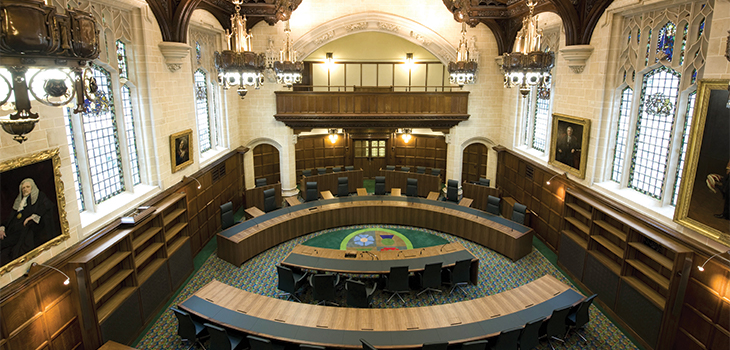
- The Justices & judgment writing.
- Prominent cases.
- Institutional issues.
The Justices
At the end of 2020 the Supreme Court looked very different from how it did a year earlier. In January it acquired both a new president (Lord Reed, who was also made a life peer, replaced Lady Hale) and a new deputy president (Lord Hodge, replacing Lord Reed). As well as Lady Hale, Lords Carnwath, Wilson and Kerr all retired, the four new Justices being Lords Hamblen, Leggatt, Burrows and Stephens.
Statistical overview
In 2020 the Supreme Court gave judgment in just 53 cases, the lowest annual number to date and a considerable drop from the average of 68 cases per year. 23 of the cases had been heard by the court in 2019. It’s not clear whether Covid-19 restrictions had any bearing on the throughput of cases. The cases embraced one reference (by the attorney general for Northern Ireland) and 59 appeals (including four cross-appeals).









